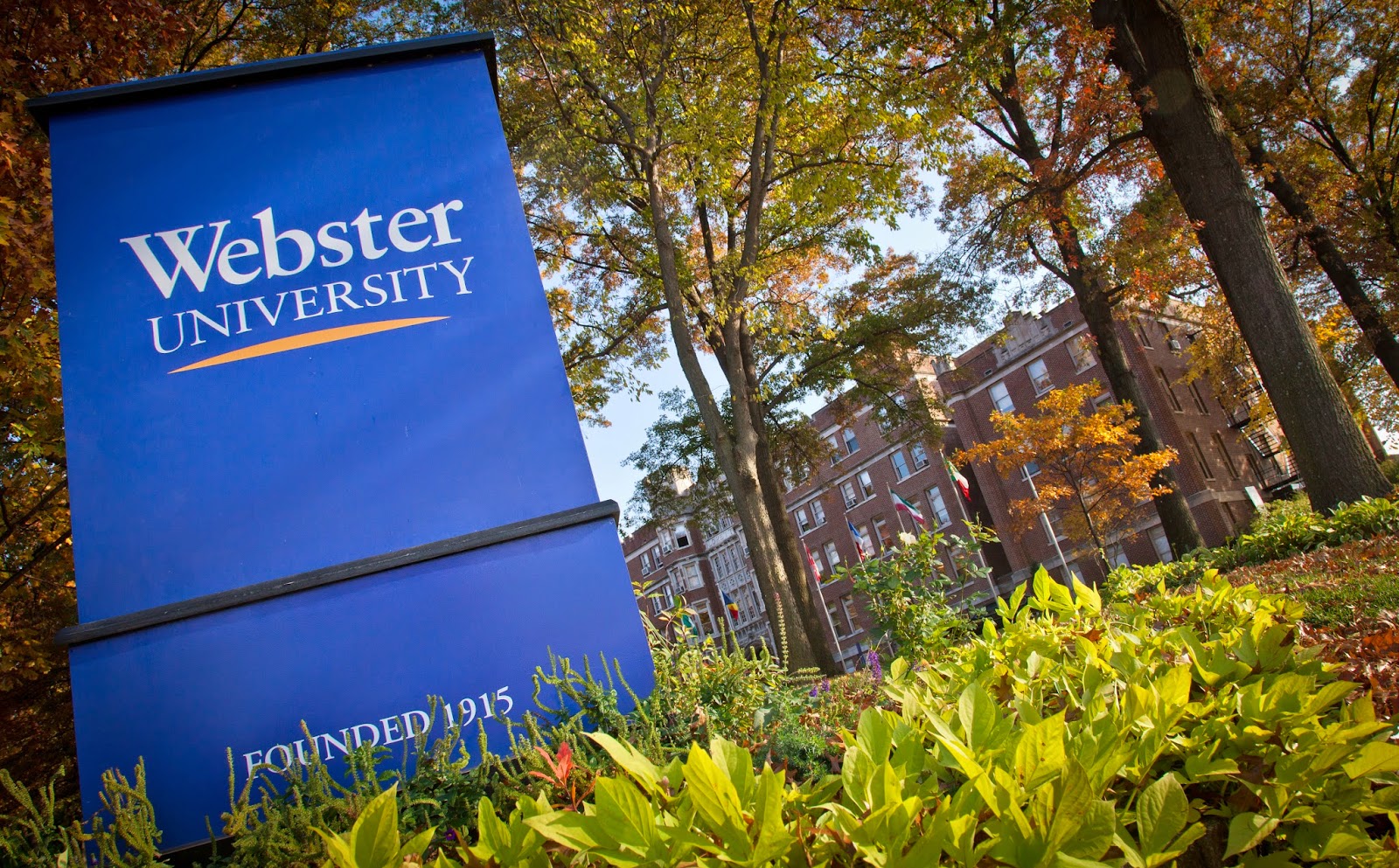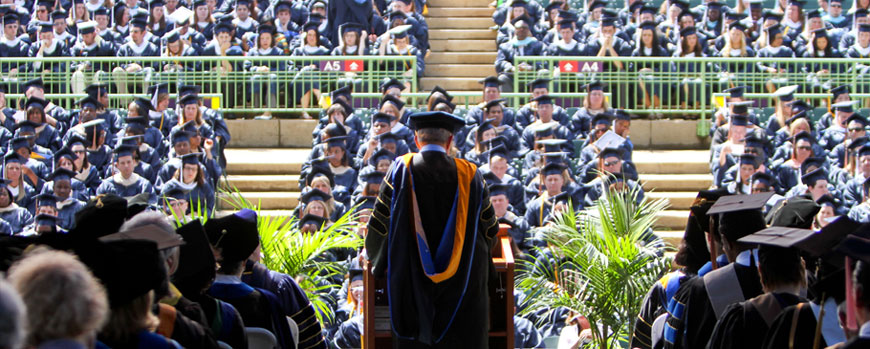Dr. Julian Z. Schuster, Provost, Senior Vice President and Chief Operating Officer of Webster University, told Vestnik Kavkaza about the role of private institutions in the education system of the United States, the advantages of Webster University, and prospects of cooperation between the university and Russian institutions.
- What’s the main difference between public and private schools besides money?
- The key difference is that public schools usually operate under a certain influence of the state, where they are located. They are supported by the state, which means, they receive funds from local states and local governments, directly from the budget of the respective state. Private institutions do not. And in that regard the most important thing is, and I would like to emphasize this, the level of independence. In general, private institutions are much more independent in designing and executing their missions than the state institutions. State institutions are dependent to the state legislator who can not only appoint their board, but who can also regulate their activity, and exert influence in demographics of their students, that is, whom do they serve and how do they serve. The other difference is that independent institutions, those I refer to as the private institutions, are in general much smaller than the state institutions. In such Behemoths as a large state system, one can have twenty, thirty, forty, fifty thousand students, whereas small, private institutions – a thousand, two thousand, three thousand, five thousand students. That is where the size matters and it matters the most regarding the number of students in the class. For example, in some state institutions certain classes can have several hundred students. In private, independent institutions, it is almost never the case. Here you have personalized instruction and small classes, which enable a unique educational experience. Students at the smaller, private, independent institutions attend classes with less than twenty students. This enables the professor to have a personalized approach to each and every student that is extremely important in educational process. Each and every dissemination of knowledge is deeply personalized and concrete. You cannot, in my opinion, expect in a class of five hundred people that students like a sponge will absorb everything professors say. In a smaller class, on the other hand, you have personalized approach where professor simply devotes more time to his students. The time and the personal connection is essential for an individual to acquire knowledge. So, I do believe that independent institutions, private institution, from the standpoint of having more flexibility in executing of their mission, and more flexibility in personalized approach to students, are more effective than large state institutions.
- What can you say to those critics who say that education should be free; many politicians nowadays lobby this idea (some for political gains), their argument is huge student debt. What can you say to them?
- There is big difference between not-for-profit and for-profit institutions. The large student debt emerged with the advent of the for-profit institutions. I do not want to single out any of them, but you can easily find their names on the web. For-profit institutions did a good job in creating convenient ways for non-traditional students to pursue their degrees. However, while there are numerous success stories, these degrees often did not lead to a job, a better job, or more income. And if you do not derive more income after you graduate, the problem exacerbates. So, in many respects, the advent of these institutions contributed to the student debt. But there is the other, hidden or not so clear phenomenon. The fastest growing index of prices in the last ten to fifteen years was the cost of education at public institutions, not private. The cost of tuition at public institutions increased more than in private ones. Actually, it increased more than any other price index in the United States: price of oil, price of electricity, price of food. That definitely contributed to the student debt.

The key issue is that the purpose of education is not to get a diploma. The purpose of education is to acquire the skills and to acquire the competences, and most important to acquire the knowledge. And knowledge means to acquire the understanding of the world around you. Thinking that if you have something for free, you will be capable of really imparting knowledge upon greater number of people is, in my opinion, a little bit utopian. The delivery of education is accompanied with the growing costs, often outside of control of universities and colleges. These costs need to be recovered, either directly (through tuition) or indirectly (through state funding) or combination of both. In any event, even if we set the tuition to zero, somebody (taxpayers) will need to pick up the tab. Education as it is currently designed must have the price and it is not free. So, the real issue is: who is going to pick up those costs? This is a fundamental question and we need to address this issue. Furthermore, it is extremely important that we do not conclude that private education is better than public education. That is not necessarily the case. And you have throughout the world, in Eastern Europe in particular, or in former, so called, socialist countries, numerous schools emerged as private institutions. They did not emerge as an independent provider of personalized knowledge or education, but they emerged as a very profitable business. The owners of those universities acquired profits, without providing the better education to people. We must be very careful in distinguishing those two things. The issue is not “private vs. public.” The issue is that we need to create a better educational system, where instead of “either-or” we will have sufficient maneuvering space for both institutions, so the people have more choices.
- What do private institutions like Webster do to help talented students from low income families?
- The Webster University is known for educating a disproportioned number of first-generation students (first-generation students - meaning those whose parents did not finish a university). It is also known that we do have large number of students that come from the background which is not affluent, who have larger needs for a tuition discount or any kind of scholarship. We are building our endowment so that we can provide more need based and merit based scholarships to talented students. Another important activity Webster is involved in is that being a global university, we try to provide global experiences to our students. We provide for students’ mobility, covering airfare those who decide to study at one of our international campuses. Thus, we are imparting upon them skills, which are going to enable them to find a job faster, to be more competitive in the work place, to experience less financial strain when they finish, so they will be more successful both in their profession and in their private lives.
- Webster University is known for having very extensive international programs, you have branches in several countries. Can you talk a little about that? And also how many universities in the US offer such programs and how does it help students to be exposed to different cultures?
- This is the key issue for Webster University. There is no public or private university in the United States, which has such an extensive and robust network of international campuses as Webster University does. We have fully-fledged residential campuses in The Netherlands, Austria, Switzerland, we do have our operations in Ghana and Thailand, we have also partnerships in China, and recently we launched one in Athens, Greece. We hope that it is going to become yet another addition to our network of international campuses. By being uniquely positioned to have something that the other universities do not, enables us to fulfill our mission and our vision, which is to educate and prepare students for global citizenship and individual excellence. And these two things cannot go without each other. In today’s world every university mentions globalism on its website. However, some universities define globalism by teaching a foreign language. For us globalism is defined by providing an opportunity for students to move from Vienna to The Netherlands, to Thailand, to China, to Ghana and to learn to adapt and to learn from other cultures. By providing them an opportunity to meet businesses, to meet other communities, we are preparing them to be more adaptable and more successful in their careers once they graduate. So, for us it is absolutely quintessential that students who come to us get full access to our network of international campuses. We infuse globalism in all of our programs. It is not only if you study international relations that you will be exposed to the global issues. Each and every one of our students through our global citizenship program (which is our general education program) is exposed to the global issues; and when you have a theory in the classroom merged with practices which exist on our international campuses, then you achieve thorough globalization. To the best of my knowledge, no other university has this in the United States, neither private nor public.

- Since we are a Russian media, I have to ask you: are you planning to open Webster University branches in Russia? And second part of the question: do you think that maybe cooperation in education will help the two countries to move forward in a more dynamic manner?
- First of all, what brings people together is learning from each other and better communication, and it is proven that better educated people communicate better. Those two things, of course, go together hand in hand. Webster University has just started establishing broader and deeper contacts with partners in Russia. We are exploring several options. One is, of course, connected with the capital city of Moscow; other options are in other regions where there is need, because what we would like to do is to partner with an institute with which we will complement each other. This is a very important part. Webster University does not want to cooperate with anybody on terms of superiority. We do not think that we know something better than others do; we know that we have some advantages in some areas, but we would like to partner with somebody from whom we could learn something, so when we work together we would prosper both locally and globally. Our objective would be to utilize vast experiences that you had in disciplines in Russia, to enhance our understanding of, for example, STEM education: science, technology, engineering, mathematics. On the other hand, we have programs in the area of communications, marketing, business; we could impart those competences to our Russian partners. It goes without saying that Webster University has a premier fine arts program, and whoever knows anything about Russian institutions of higher education and Russian society as a whole, knows that potential Russian students at Webster University will not only learn from us, but we will enrich our own program and make it stronger. Webster University has a genuine desire to strengthen partnership with Russian educational institutions; and in this challenging, I would say, times, we could use this as a potential avenue for narrowing the differences that exist in many other areas.






